Finally, we’ve arrived at my final piece in this little series. This topic is what inspired me to write about why people are losing games in the first place, but I wanted to test the waters with stuff about actual gameplay which you can read here and here if you haven’t already. This one though? It is, in my opinion, the greatest possible drag on one’s ability to get better at Legion, or any table top game, or really to improve any skill under the sun.
It is the desire to blame your loss on just about anything except your own actions.
And in Legion, that’s usually the dice.
I definitely did it early on in my playing days. You’ve done it. Your best Legion friend has done it, and they’ve probably done it against you. “I didn’t have a chance after Luke whiffed on Son of Skywalker!” “What am I supposed to do when Vader rolled a block every time?” “My attack rolls were garbage!” Depending on who you were griping to and their usual bias toward such exclamations, your attributions were met with one of the following:
- Actual sympathy
- Defensiveness
- Awkward silence
- “Yeah man…I dunno what to say”
- Doubt that you’re focusing on the right thing, but masked as true sympathy
But this isn’t an article about the art of polite Legion conversation (It would be assigned to Timbo because he’s Canadian and therefore much more polite than the rest of us), this is an article that is aimed at those of you who do not see an important truth. There’s some folks out there who may feel a bit “stung” by this point I’m about to make. Perhaps you’ll decide right here and now that I’m ticking you off because I’m an ass who is talking out of my own…self. And that’s fine, maybe you’re right, I’m not some omniscient being of pure energy. I’m only a Clinical Assistant Professor and there are two entire levels above that kind of garbage tier educator…so you probably shouldn’t listen to me anyway! Ok, now that I’ve established that I actually am being kind of an ass (an honest one though), here it is:
“Legion players who say they lost because of dice are almost always wrong, and they’d improve more if they stopped”
If the above sentence doesn’t surprise or interest or insult or disturb you a damn bit then…well you can stop reading now I guess. We don’t have dice trays in stock right now so I can’t even ironically suggest you get one of those before you go. But if you feel the tug of anything at all, then, well, perhaps you should read on.
Schrödinger’s Dice
Hey there! I have good news for you! Your dice are AWESOME!
Oh shoot, it looks like I have bad news for you too. Your dice are TERRIBLE! Sorry dude!
Now I’m not just an ass but an inconsistent ass, this article is already way out of control! But here’s what I actually mean…
You throw a LOT of dice in a game of Legion
Imagine a game between two identical Imperial gunlines: Veers, 6 stormtrooper T-21 squads (each with an extra mini), three snipers, and two E-Webs that basically just decide to move directly at each other and keep shooting. We can assume that only the snipers will shoot in the first round, and that you lose a around a full squad of storm troopers by the end of each subsequent round. By the time your extremely boring game was over, you would have thrown 281 attack dice, with a vast majority of the infamous white attack dice. While it would certainly be fun to throw all those dice at once, that’s naturally not the way they actually work in a game, you see all those dice divided out into a couple dozen actual rolls.
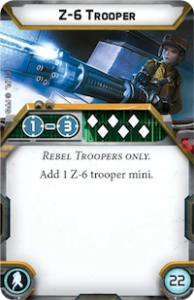
It’s the Rebel Z6 though that is the game’s true slot machine, since like a real slot machine there’s a decent chance you’ll win something, a small chance you’ll win big, but the most likely result is that you’ll leave disappointed (haha…sorry Rebel players, maybe learn how to share tokens). Below is a chart (taken from tellmetheodds.net, an excellent way to math out results!) of 10,000 simulated un-aimed rebel trooper Z6 rolls against stormtroopers in zero cover. It’s a fairly straightforward way to look at things in my opinion, just look at each dot on the chart and remember that it represents the number of results (Y axis, the total of which is 10,000) that yielded the (X axis) number of wounds/saves and you have something very close to the true probability of that result actually occurring. Thus, by looking at the third RED dot from the right, you can see that the Z6 has a 30% chance of doing two wounds. Each grey line on this chart represents a 5% change in probability because 500 is 5% of 10,000.
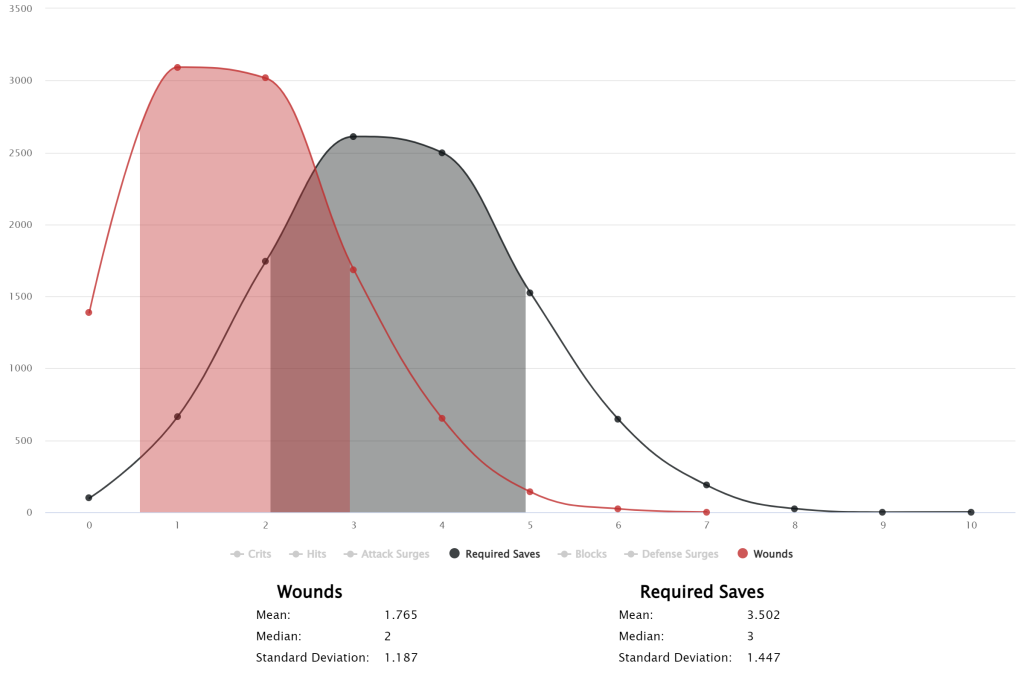
I really dig this visual representation for my point here, because while it’s the mean that actually matters when it comes to the efficacy comparisons between different attack pools, it’s the distribution that we actually see with our own eyes. A Z6 shot will never actually yield 3.5 results of course, but anyone who has played the game long enough has seen plenty of instances where the Z6 only gets a single hit or crit on an open target (6% chance) as well as plenty where it forces 6 saves on that same target (also 6%, funny enough). This is basically analogous to the chance of rolling a critical miss or a critical hit in D&D (5% each), which of course happens plenty over the course of a game where dozens of rolls are made
“Alright Evan we know that a Z6 can flunk it or dunk it, what’s the point?” Well, I’ll show you. What if instead of rolling 4 black and 6 white dice 10,000 times…we rolled 40 black and 60 white dice 10,000 times?!
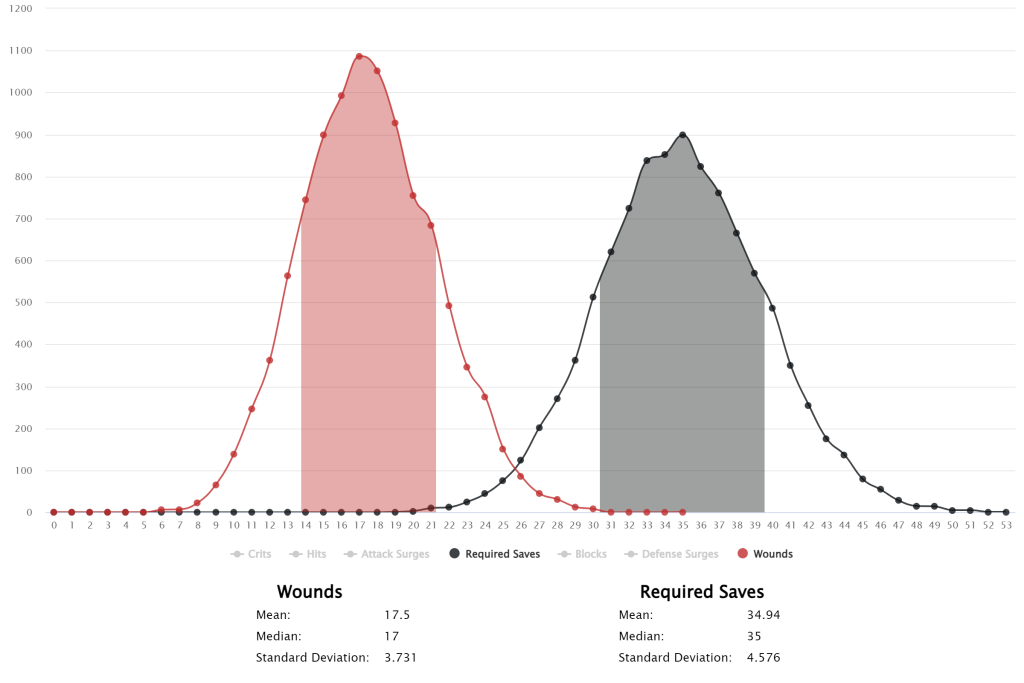
Forgive me for the fact that I’m not a mathematician so I can’t speak to this more eloquently, but there is a metric called coefficient of variation that basically speaks to how wildly the results of a data set sway back and forth, the higher the number the wilder the swing. In this case, the top chart’s coefficient is 0.67 (wild swings when you’re just looking at one Z6 unit’s dice roll) and the bottom is 0.21 (with 10 times as many dice thrown, which is fairly predictable by comparison). I know that to some of you I’m preaching to the choir, and to those of you more math oriented than me I probably read like a moron, but the take-home point is that while one roll of the dice can be pretty chaotic, a bunch of those same dice rolls will be less and less so over time.
Ugh Math and Charts…
Yeah I know sorry, I’m done with the math part (sorry again to the actual math people out there btw), but this leads into the more humanistic angle here. The point of all that was to remind you that since you roll a lot of dice over the course of even one game, the chances that all those rolls went heinously against you and not your opponent are pretty low. So while it may be true that you just whiffed on a 14 dice double-attack from Op Luke, I’d be willing to bet that one of your shooters probably had an obscene roll earlier in the game. Of course, your brain doesn’t see that because well…your brain can be kind of a jerk sometimes.
Mr. Negative
One thing I can speak with far more authority on than math is the nature of the human brain and its enormous propensity for bias. Specifically in this case, I’m talking about negativity bias. Basically this means that your brain holds on to negative information far more fiercely than positive information, as exemplified by this comic by the famous Awkward Yeti.
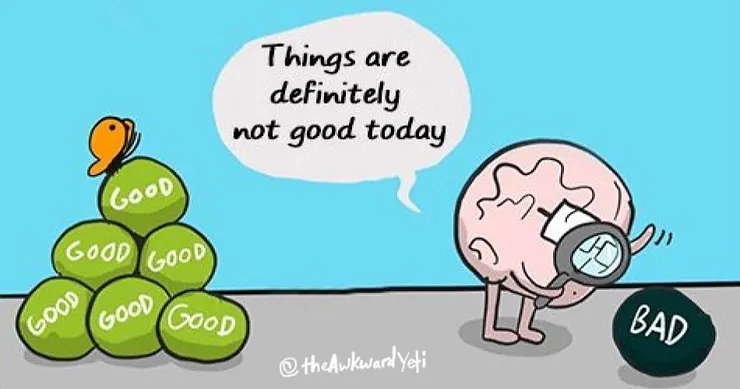
The intro to this manuscript covers this pretty well if you are curious about the science. Suffice to say that it’s such an ironclad feature of our brains that it’s considered to be just as normal as the fact that you’re usually hungry if you haven’t eaten anything by noon; it’s an extremely reliable and hard coded feature of our noggins. What makes this more interesting to me in this context is that the Star Wars: Legion crowd is a perfect population to witness this effect in. Young adults, specifically in their 20’s and 30’s, demonstrate negativity bias more strongly than either children or older adults. Chances are that if you’re reading this you ARE in that age group, and that your brain, whether you like it or not, is going to “gift” you with this bias. The result is that after the end of the game where you had an equal number of good rolls and bad rolls, you are going to remember the bad rolls much more.
So does that mean young adults (probably like you!) have bad brains? Nope! Pop quiz hot shot, which one of the following two facts do you think would be more important to remember, and tell future generations about when it comes to the qualities of this berry, which is native to North America?

- If you crush it you can make some lovely hot pink clothes out of it
- If you eat just one you’ll vomit every ounce of liquid from your entire GI tract and potentially die from respiratory paralysis
Pour one out for the first Indigenous Americans who had to learn about Pokeweed’s toxicity the hard way after they began settling in the American Southeast, but you can bet your butt that it quickly became a part of the list of life lessons parents would teach their kids. For all we know this bias may well be one of the key reasons our species made it all the way from the “don’t stand in front of mammoths” stage to the “writing about plastic space wars” stage of human evolution. Maybe if Neanderthals had more negativity bias they’d be reading this right here with you, though assumedly they’d be upset that it’s not another article about how awesome Kashyyyk Defenders are.
“The Greatest Teacher, Failure Is”
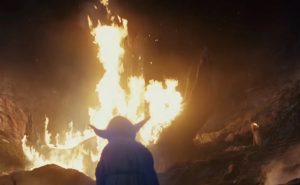
It’s a bit ironic Yoda said this since he fails fewer saves than pretty much anybody.
I’ll astound no one by saying that trial and error is the essence of becoming an expert in uh…everything. Right now, I’m learning to play bass guitar…and I suck at it. There are certainly some people who can watch Jaco Pastorius lay down a riff and emulate it pretty well even as relative novices, but that ain’t me. I’m taking some paid online lessons and it’s slow…which is fine! I’m not stressing about it, I’m never gonna try to make money from playing bass so it’s not like there’s a rush, plus it’s fun to examine my own screw ups to slowly get better at it.
By contrast, in my day job, the ability to learn from your own mistakes can literally be a matter of life and death. I’ll spare you from getting into this much further because I don’t want to bring the mood down, but the short version is that there’s a reason we don’t let doctors out into the world unsupervised until they’ve had several years of highly observed on-the-job training, to allow for “trial and error” in an environment that still protects the patients they’re actually trying to learn how to help.
Luckily the consequences of losing a game of Legion are just a bit lighter. But “learning” Legion is different from learning an instrument, how to ride a bike, or even studying for a test/some other thing that’s actually important in life (i.e. not a Star Wars doll game). That’s because unlike all those, you really can’t just “practice” Legion whenever you want. If you’re really gonna practice then you need all your components together, a game table, proper terrain, and 3 plus hours of dedicated time for you AND an opponent who knows how to play the game. Some of you are fortunate to be able to do that just about whenever but most have at least a few reasons why that just doesn’t come together too often.
So let’s say you don’t get to practice that often and you do really want to become better at the game. Well, it makes the consequences of “missing out” on opportunities for improvement all the more dire doesn’t it?
Every game that you don’t learn from is a significant lost opportunity
If all you see are that a couple key rolls didn’t go your way, and end the game by waving your hand and saying “I just got diced dude,” then you’re shooting yourself in the foot with a blaster that shoots a handful of surging reds. There is always something to learn. Don’t believe me?
This article is releasing at the very end of 2023. I go to few enough events that it’s pretty easy to remember what my record is, but I remember way more about the 6 losses I’ve had than the 19 wins (there’s that negativity bias again!). Feel free to skip this part if you want to just go to the conclusion, I thought it might be interesting to see how I remember these and what lessons I took away.
- LVO Day 1: Lost with Blizzard Force against Dave Grant, helping make him famous for his insane Vader Palp tank list. It was Bombing Run and I didn’t understand his list’s trick of catapulting Vader across the whole map, so he wrecked a speeder before it dropped when it was all alone and it was nearly game over at that point. I’d like to think I was a bit of a canary in the coal mine for my co-editor here Kyle Dornbos, we spent some time at dinner talking about my cause of death and Kyle managed to beat Dave in a close game the next day.
- LVO Semi-Finals: Lost with Blizzard Force against Kyle’s…Blizzard Force. What a great meta that was, and what a way to thank me for the tips against Dave, dude! It was Payload and he deployed his speeders better than me, forcing a mismatch that shifted attrition in his direction early on and I just couldn’t recover from.
- Worlds Day 1: Lost with Anakin Gunline against Double Dark Double Imperial Guard. I spend all game trading shots with Paul Paella on Key Positions but it takes me the whole game to kill ONE dark trooper unit, I lose the game on a failed rally roll which otherwise would have tipped it to me. But if I had just hidden the whole game, that rally roll would have been irrelevant. This was probably the closest I could have come to “blaming the dice” but hopefully it’s a reminder that there’s always something else to take away.
- Worlds Day 1: In the streamed round 3 match on Day 1, Anakin Gunline against Marcus Wacker’s Anakin BARCs. This was a turn 0 mistake, I should have just forced Sabotage but my brain hadn’t switched over to the new red player/blue player dynamic where low bids win ties instead of Blue, so I avoided it. Then both of us basically played fine, had some crazy dice on both sides, and he won because his list was more mobile.
- Bremerton, WA Store Championships: Anakin Gunline losing to Kyle Nelson’s Vader list. Another turn 0 mistake, I ended up on Payload and Hemmed in as Red which you should never ever do, when I saw the terrain I realized I had lost the game before it began. Whoops! Extra silly for me because I won the fight handily, but that means zilcho when their payload is touching the target and yours is sitting there miles away from its own.
- Kent, WA Store Championships: YodaStar against Tyler Smith’s Droid Pyke Gunline. I spend my time whittling down BX’s and largely trading minis and then realized too late that my dice pools were dwindling to the point that they were worthless against Pykes with two dodge tokens. It was Intercept so I couldn’t use Yoda tricks to win and by the end of Turn 4 it was clear he had it. I should have focused down the fish first and deployed farther back to force a mismatch.

The exact moment when I realized my Worlds run was over. ‘Murca.
Before you say what you’ve been thinking this whole time
“But Evan, of course the dice matter sometimes, some rolls are way more important than other rolls.”
Yes, obviously that’s true. As I mentioned in one of my Worlds games above, one of them could conceivably have been “blamed” on a single lost roll but the key things I’ll leave you with in response to that are:
- A: Because math is math, you’ve probably won exactly as many games on key dice rolls as you’ve lost and…
- B: Because luck is luck, and is completely out of your control, you are short-changing yourself by even considering it as the most important take-away from the game
I’m done losing games in 2023, but I look forward to the losses I’ll have in 2024, because if I take the time to consider and grow from each one I will have a better chance of meeting my own potential in a game I enjoy! It’s my opinion that the chances you’ve lost any game based purely on “luck” is extraordinarily as low. I think it’s pretty uncommon that there are even many games that were mostly decided by luck. So take a deep breath, be willing to look at yourself in the proverbial mirror, and embrace that negative bias by learning from your own mistakes. Remember: everyone else is making mistakes too, but if they’re learning and you are not, then you’ll be writing the obituary for your own potential.
Or…just blame the dice and hope that they go better next time! If that’s gonna be your strategy, then I suppose the only thing I can say is…
Good luck
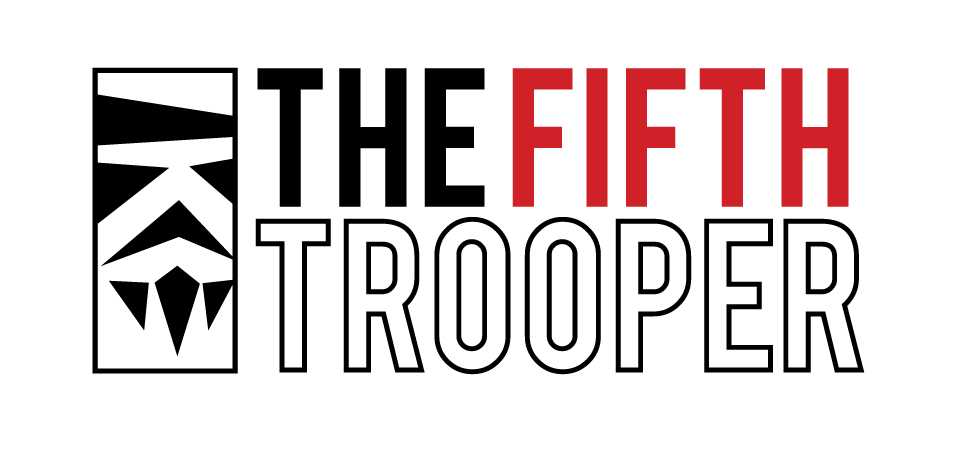
You NEVER lose in Legion, you either win or you learn . . . .
I want to send this to every single person I’ve ever played with during a game involving dice. Holy crap.